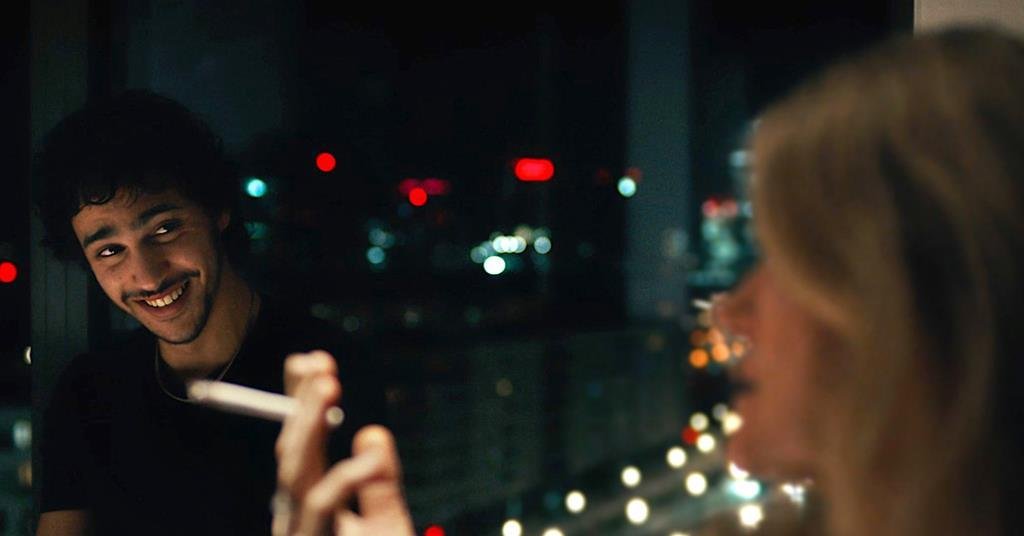Dir/scr: Angelina Maccarone. Germany. 2024. 124mins
Turning Tables provides a rangy, nuanced view of the influence of a younger Moroccan immigrant on three middle-class Europeans and, in doing so, presents a necessary counterpoint to the black-and-white emotional reactions that this hot-button difficulty typically provokes. Fastidiously balanced and considerate to the purpose of chilliness, the movie’s execution is usually outmatched by its ambition because it struggles to pack in all that it desires to say. However Angelina Maccarone’s (Hounded, Vivere) low-key, unsensational method and sly subversion of viewer expectations greater than make up for its flaws. Politically themed festivals and sidebars ought to take discover.
An important counterpoint to the black-and-white emotional reactions that this hot-button difficulty typically provokes
Turning Tables – whose its German title, Klandestin, is much extra evocative and on-point – opens with a outstanding long-distance shot of the Frankfurt skyline, which is then disturbed by the sound of an explosion. It’s the results of this explosion on the protagonists that the movie will go on to discover, shifting backwards and forwards in time because it tackles every of them by flip.
Immigration drags folks from totally different orbits into typically harmful proximity, and it’s on this hazard zone that the movie performs out. Hoping to make a brand new life in Berlin, Malik (Habib Adda) has been smuggled throughout the German border in a van belonging to Richard (Lambert Wilson), an growing older painter who, like many earlier than him, is hopelessly infatuated with the youthful Moroccan. Richard is an outdated buddy of Mathilda (Barbara Sukowa), a steely right-wing politico with strongly anti-immigration views. But, Malik finally ends up staying at Mathilda’s condo – she even presents to assist him get a visa – whereas Richard travels to London.
Mathilda’s PA, lawyer Amina (Banafshe Hourmazdi), is a second-generation immigrant who has made a great life in Germany. A single mom, she can be making an attempt to flee from a relationship with Sibylle (Katharina Schuttler), a political opponent of Mathilda’s. Having been strictly forbidden from doing so, Malik leaves Mathilda’s condo and promptly turns into buddies with the 2 roller-skating anarchists who laid the bomb. Frankfurt’s seemingly ubiquitous surveillance cameras will do the remainder.
That’s numerous socio-political and emotional materials, and certainly there’s sufficient effervescent away beneath the floor right here for a mini-series. There’s all the time the nagging sense of fabric being compressed: a few coincidences need to be pressured with a view to push by the story that Maccarone desires to inform, however the script handles them in a broadly profitable method. The leaps throughout time durations, as we learn the way every of the characters got here to be right here, are smooth-flowing and confusion-free. On the draw back, Maccarone’s admirable want to keep away from histrionics sarcastically leaves the movie feeling stylistically a bit of flat, with a few clear alternatives missed to boost the emotional temperature
The dramatic compression is extra damaging on the degree of character, with the ladies coming over as dwelling, respiratory folks however the males struggling in opposition to stereotype. Tousled-haired and ever upbeat, Malik presumably has an internal life, however the script limits it to a few flashbacks. Because the growing older artist desperately in search of to reclaim his youth by way of his relationship with Malik, Richard fares even worse, his emotional turmoil beginning to really feel self-indulgent in a setting the place the stakes for everybody else are so excessive.
It’s by the ladies that the actual problems with Turning Tables are performed out, as Mathilda and Amina wrestle to barter a hidden, klandestin aspect to themselves that Malik’s arrival has introduced into the open. In public, Mathilda is a nasty piece of labor – cynically glad to adapt to the Iron Woman stereotype, she thoughtlessly delivers anti-Muslim soundbites to maintain her followers onside. However as she reminds Richard, issues aren’t so black and white; she has a historical past and has been a distinct form of particular person, and it’s presumably the earlier, extra idealistic model of her that brings Malik, albeit implausibly, into her condo.
Mathilda providing Amina a job as her PA is a self-serving technique, since using a Moroccan would “play properly”. However by the drama Amina herself, embodying themes of race, id and sexuality beforehand tackled by Maccarone in 2005’s Unveiled, begins to query whether or not she’s carried out the precise factor in following her mom’s recommendation by making an attempt to “be German”, which she involves really feel as a betrayal of her personal id. It’s within the character of Amina that Turning Tables is at its most considerate.
Manufacturing corporations: Cala Movie
Worldwide gross sales: Kunsthochschule für Medien Köln, Uta Dilger ute.dilger@khm.de.
Producers: Martina Haubrich, Claudia Schroter
Cinematography: Florian Foest
Manufacturing design: Holger Sebastian Muller
Enhancing: Gergana Voigt
Music: Freya Arde
Predominant forged: Habib Adda, Banafshe Hourmazdi, Barbara Sukowa, Lambert Wilson, Katharina Schuttler
